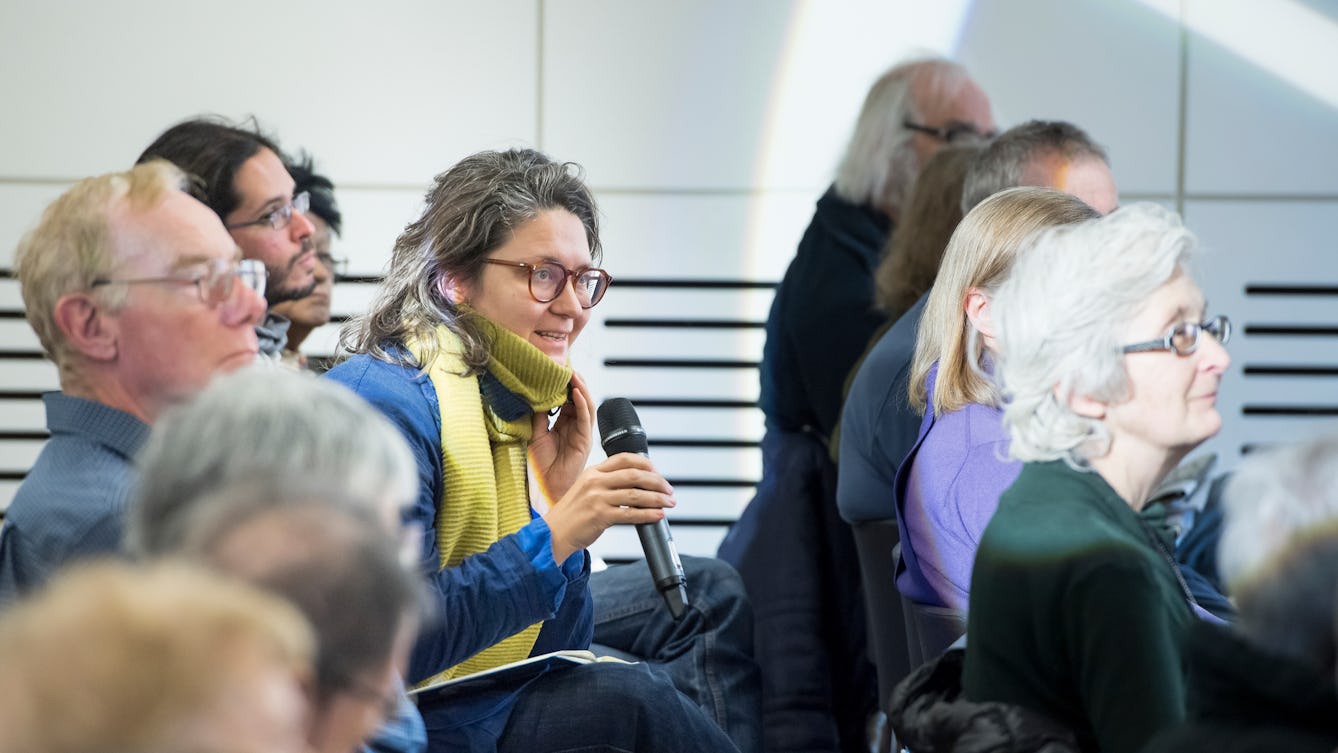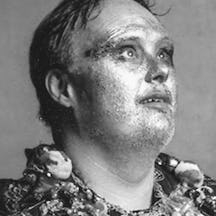Hear from artist Deborah Kelly and artist, activist and drag star Danny Smith about the process of making an intimate life-sized portrait of Danny with members of the public. The portrait will become one of those in the ’No Human Being is Illegal (In All Our Glory)’ series on display in the ‘Being Human‘ gallery. The discussion will be facilitated by artist Catherine Long.

Dates
Need to know
Location
We’ll be in the Studio on level 1. When you enter Wellcome Collection, head up the stairs or take the lift, then follow the signs.
Limited spaces available
Spaces are limited and may run out if we are busy so you may wish to arrive early.
Relaxed
This is a relaxed event, which means that if you need to, you are welcome to move around and make noise at any time.
For more information, please visit our Accessibility page. If you have any queries about accessibility, please email us at access@wellcomecollection.org or call 0 2 0. 7 6 1 1. 2 2 2 2
About your contributors
Deborah Kelly
Deborah Kelly has been investigating the expansion of the humble, lo-fi art of collage since 2011. Her epic collaborative portrait project ‘No Human Being Is Illegal’ was commissioned by the Biennale of Sydney, then toured Australia 2014–18. In November–December 2019 she is Artist-in-Residence at the Wellcome Trust in London.
Danny Smith
Danny Smith is a multimedia artist whose art embraces performance, film, drawing, painting and photography. He says, “First I was a baby and I was handsome, then when I was a teenager I became more who I am. My art comes from my heart.” His past projects include the exhibition ‘Rising’, a group show by Shadowlight Artists at two venues, the Old Fire Station Gallery and Modern Art Oxford, and ‘Prima’, a dance piece performed at The Royal Opera House with ‘Thick & Tight’.
Catherine Long
Catherine Long is an artist who is curious about the spaces in between people; places of connection. She utilises her own embodied knowledge and life experience of marginalisation in creative ways, particularly with others whose voices are often dismissed or ignored, proposing that they be listened to, heard and valued.

